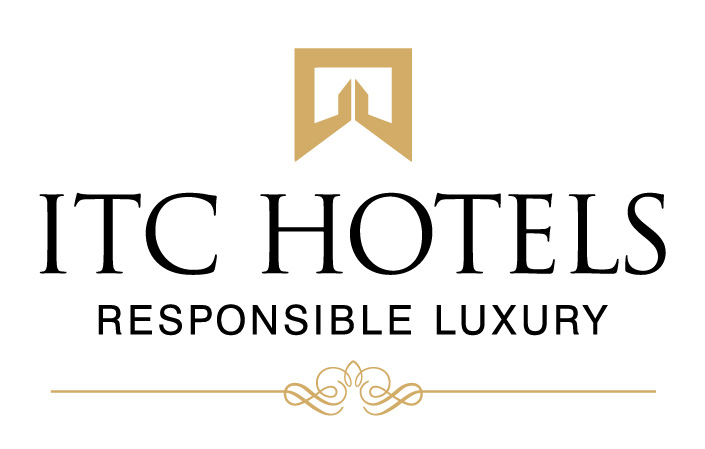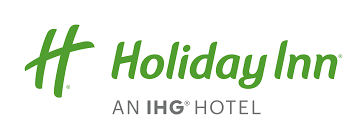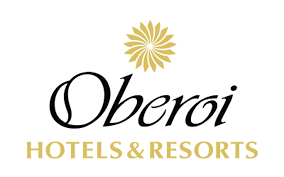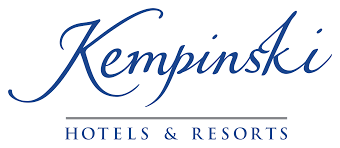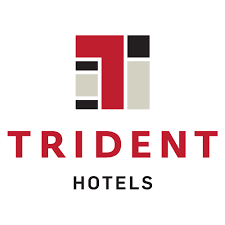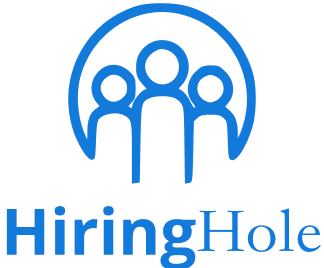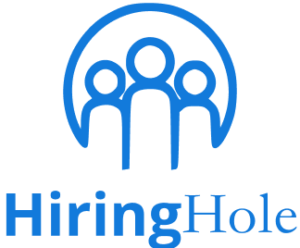
HiringHole Tips for a Successful Interview

Onboarded 10k+ Candidates

You can be the next one!
Deciding Factors For A Successful Job Interview
The impression you make on the interviewer often can outweigh your actual credentials. Your poise, attitude, basic social skills, and ability to communicate are evaluated along with your experience and education.
You and the interviewer must engage in a conversation – a mutual exchange of information and ideas. Only through such a dialogue can you both determine if you, the organization, and the job are well matched. Preparation is the key.
Be on time
This often means 10-15 minutes early. Interviewers often are ready before the appointment.
Do Your Research
During the interview, you will certainly be faced with questions like “What do you already know about our company?” or “Why do you want to work here?”.
In order to answer, you need to have a pretty good idea of what the company is about, so make sure you do some research before going in for the interview.
Check out their website and learn about their:
- culture, mission and values
- products and services
- client base
- You should also be up to date on any recent news or event related to the company.
- Apart from preparing you for the interview, this search will also help you evaluate if the company is the right fit for you


Know the interviewer’s name, its spelling, and pronunciation.
Use it during the interview. If you don’t know the name, call beforehand and ask the secretary. Also, note the secretary’s name in case you have to call back. Secretaries can influence the hiring decision!
Have some questions of your own prepared in advance.
There is nothing wrong with having a short list of questions and thoughts- it shows you have done your research and want to know more about the organization and the position.
Bring several copies of your resume.
Also, bring a copy of your transcript. Carry your papers in an organized manner.
Have a reliable pen and a small note pad with you.
But do not take notes during the interview. However, immediately afterward, write down as much as you can remember, including your impression of how well you did.
Greet the interviewer with a handshake and a smile.
Remember to maintain eye contact (which does not mean a stare down).
Maintain Good Body Language
Your body language conveys a lot about your character and it’s one of things you should practice being good at.
When at the interview, make sure you:
Maintain good posture. Don’t rush when entering the room, keep your shoulders back and stand tall.
Give a warm greeting. Don’t be afraid to give a smile, maintain eye contact, and shake hands.
Sit upright. Whether it’s a long interview or an uncomfortable chair, try to keep a good posture during the whole time. Avoid slouching or leaning back too much.
Maintain eye contact. This shows the interviewer you’re present and paying attention to the situation. From time to time though, switch your gaze to their chin or between the eyes. Staring at someone in the eyes non-stop for 30 minutes might come off as a bit creepy.
Smile. Whenever it is fit, don’t be afraid to give a warm, positive smile.
Expect to spend some time developing rapport.
Don’t jump right in and get down to business. Follow the interviewer’s lead.
Don’t be embarrassed if you are nervous.
As you gain experience, you’ll become more at ease with the interviewing process.
Focus.
On your attributes, your transferable skills, and your willingness to learn; don’t apologize for a lack of experience; describe your strengths in terms of what you can do for the organization.
Tell the truth.
Lies and exaggeration will come back to haunt you.
Listen carefully to the interviewer
Never slight a teacher, friend, employer, or your university.
Loyalty ranks high on the employer’s list.


Watch your grammar.
Employers are interested in candidates who can express themselves properly. Even if you have to go slowly and correct yourself, accuracy is preferred over ungrammatical fluency.
Be prepared for personal questions.
Some interviewers may not know what they can and cannot ask legally. Anticipate how you will handle such questions without losing your composure.
Wait for the interviewer to mention salary and benefits.
To research pay scales, refer to salary surveys and information on the Career Services website on in the career library. Prepare Answers for the Common.
Interview Questions Beforehand
No matter the position or interviewer, there are some common interview questions that you will always be asked.
That’s actually a good thing since it allows you to think your answers through beforehand and leave the best impression at the interview.
Some such questions are:
- Tell me something about yourself.
- How did you hear about this position?
- What are your biggest strengths/weaknesses?
- Why should we hire you?
- Even though they are open-ended questions, recruiters are usually looking for a specific response from you.
- Take your time in preparing, as your answers might make or break the deal.
When at the interview, make sure you:
Maintain good posture. Don’t rush when entering the room, keep your shoulders back and stand tall.
Give a warm greeting. Don’t be afraid to give a smile, maintain eye contact, and shake hands.
Sit upright. Whether it’s a long interview or an uncomfortable chair, try to keep a good posture during the whole time. Avoid slouching or leaning back too much.
Maintain eye contact. This shows the interviewer you’re present and paying attention to the situation. From time to time though, switch your gaze to their chin or between the eyes. Staring at someone in the eyes non-stop for 30 minutes might come off as a bit creepy.
Smile. Whenever it is fit, don’t be afraid to give a warm, positive smile.Expect to spend some time developing rapport.
Don’t jump right in and get down to business. Follow the interviewer’s lead.
When at the interview, make sure you:
Maintain good posture. Don’t rush when entering the room, keep your shoulders back and stand tall.
Give a warm greeting. Don’t be afraid to give a smile, maintain eye contact, and shake hands.
Sit upright. Whether it’s a long interview or an uncomfortable chair, try to keep a good posture during the whole time. Avoid slouching or leaning back too much.


Maintain eye contact. This shows the interviewer you’re present and paying attention to the situation. From time to time though, switch your gaze to their chin or between the eyes. Staring at someone in the eyes non-stop for 30 minutes might come off as a bit creepy.
Mind Your Attitude
What you say matters. How you say it matters equally as much.
Nobody wants to deal with an arrogant person, let alone work with them, so pay attention to your tone and wording.
Show up at the interview with a positive attitude, be energetic, and most importantly be respectful to everyone.
Prepare Questions for the Interviewer
At the end of the interview, you’re going to be asked:
“Do you have any questions for us?”
This is where most interviewees say “no, thanks!” and walk away. Want to stand out? Do the opposite – ask away!
Ask about what it’s like to work at the company, expectations for the positions, good and bad things about the company, etc.
This shows that you’re actually passionate about the job and the company, and you didn’t just randomly apply.
Don’t Badmouth Previous Employers
When at the interview, make sure you:
Maintain good posture. Don’t rush when entering the room, keep your shoulders back and stand tall.
Give a warm greeting. Don’t be afraid to give a smile, maintain eye contact, and shake hands.
Sit upright. Whether it’s a long interview or an uncomfortable chair, try to keep a good posture during the whole time. Avoid slouching or leaning back too much.
Maintain eye contact. This shows the interviewer you’re present and paying attention to the situation. From time to time though, switch your gaze to their chin or between the eyes. Staring at someone in the eyes non-stop for 30 minutes might come off as a bit creepy.
Smile. Whenever it is fit, don’t be afraid to give a warm, positive smile.Expect to spend some time developing rapport.
Don’t jump right in and get down to business. Follow the interviewer’s lead.
When at the interview, make sure you:
Maintain good posture. Don’t rush when entering the room, keep your shoulders back and stand tall.
Give a warm greeting. Don’t be afraid to give a smile, maintain eye contact, and shake hands.
Sit upright. Whether it’s a long interview or an uncomfortable chair, try to keep a good posture during the whole time. Avoid slouching or leaning back too much.


Don’t Badmouth Previous Employers
As horrible as your boss or co-workers might have been, you’re going to have to keep those feelings to yourself.
Talking negatively about your previous work relations will only let the interviewer know that you would do the same with their company if any problems were to arise.
You might have every right in the world to complain about your previous boss – there are some horrible ones out there for sure.
However, there is no way for the interviewer to know if you really had to deal with one of them or you’re just saying that to cover up your own mistakes.
Don’t expect a job offer at the first interview.Often you will be invited to a second or even third interview before an offer is made several weeks later.
Be Prepared to Face Concerns
Look at your resume and try to think about any doubts or concerns that the recruiter might have about your application:
- Do you have gaps in your work experience?
- Did you work in a position for an unusually short amount of time?
- Did you switch jobs too often?
- Are you switching careers?
- Issues like these won’t pass unobserved by the interviewer and they will certainly ask you about them.
Your move is to try to predict these concerns and prepare a professional and positive answer.
For example, if you’ve worked in a company for one month only, two assumptions might arise:
- You weren’t qualified enough and got fired.
- You quit very early, for whatever reason.
When the interviewer asks about it, you can steer them away from these assumptions by explaining the truth. For example, you can say that:
- The job didn’t match its description.
- The company culture wasn’t a good fit for you.
Close on a positive, enthusiastic note.
Ask what the next step will be. Thank the interviewer for his/her time and express your interest in the job. Leave quickly and courteously with a handshake and a smile.
No interview is complete until you follow up with a thank-you note.
Express your appreciation for the interview and, if true, reaffirm your interest. This last step can make a difference. Don’t forget it.

Hiring Hole Resume Writing Tips
- Aim for a 1-Page Resume. Check out some one-page resume templates to understand how best you can achieve this.
- Use The HiringHole Online Resume Builder for all hospitality jobs. It makes the process simple, easy and also saves you a lot of time.
- Do not lie and proof read your resume prior submitting.
Highlighting Your Essential Set Of Skills
- Highlight Communication Skills such as writing, speaking, listening and negotiating must be highlighted to attract employer attention.
- Highlight Teamwork Skills (such as collaboration, honesty, communication and responsibility, etc.) are an important asset.
Do’s and Don’ts of Resume Writing
- Do’s
- Determine your job search objective prior to writing the resume and tailor your resume for the position.
- Don’ts
- Use templates and tables included in software.
How HiringHole Works For Employers

Create A Partner Account
You need to sign up as a Partner before you are able to log in and register your job postings.

Post Your Jobs For Free
Once you log in you will arrive at your dashboard and then you will be able to submit all the Job postings.

Start Receiving Resumes Directly
Upon our approval, your job posting(s) will reflect on our platform and you will start receiving resumes from candidates directly.

